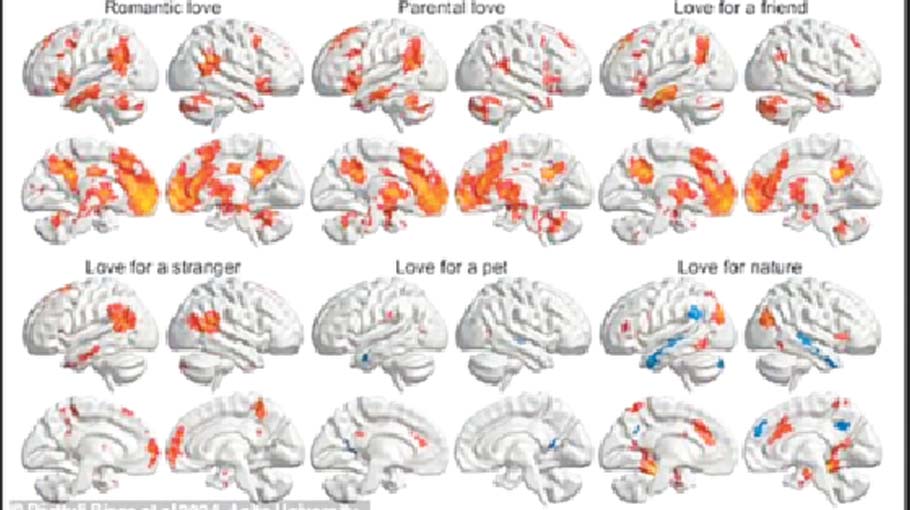Love functions in brain revealed
New maps show where different types of affection light up minds


Love might be famously described as a matter of the heart, but scientists have pinpointed its true location deep in the brain. A groundbreaking study from Aalto University in Finland has created detailed maps illustrating which brain regions are activated by various types of love, from romantic affection to the bond with a beloved pet.
What’s new: Using fMRI scans, researchers have identified specific areas of the brain linked to different forms of love. Romantic love engages regions in the base of the skull, forehead, and back of the brain, while parental love triggers a profound activation in the striatum, part of the brain's reward system.
Study details: Led by Dr. Pärttyli Rinne, the research involved 55 parents who were asked to imagine different scenarios of love while undergoing brain scans. These scenarios ranged from the joy of seeing a newborn child to the affection for a pet. A base comparison was made with neutral scenarios, such as observing a bus window.
Dr. Rinne’s study revealed that while most types of love activate similar social regions in the brain, the intensity of activation varies. Parental love produced the most significant brain response, followed by romantic love. The research also found that love for pets and nature creates distinct activation patterns, differing from those seen with human relationships.
Unique findings: The study highlights an interesting twist—pet owners exhibit a unique pattern of brain activity. For them, love for a pet triggers the social areas of the brain typically associated with human relationships, a feature not seen in non-pet owners.
Dr Rinne’s work provides the first neurological insights into how different forms of love are experienced in the brain, complementing earlier studies that mapped these feelings to physical sensations in the body.
This research offers a fresh perspective on the science of love, showing that while our hearts may be poetic symbols, our brains are where the true action happens. The study's detailed maps could enhance our understanding of affection and its impact on mental processes.




